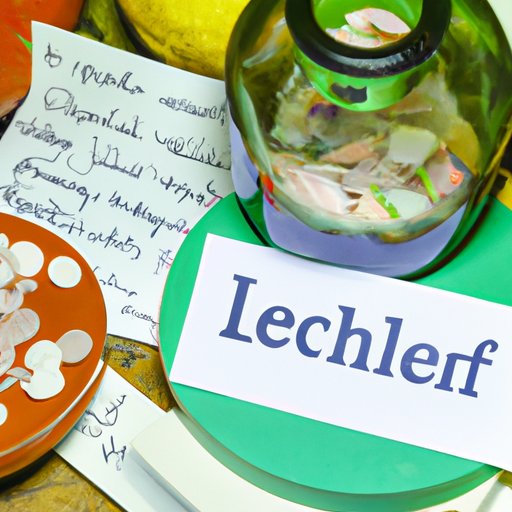
Introduction
Phlegm is a thick and sticky substance produced by our respiratory system. It usually comes with coughing episodes and can cause much discomfort in the throat. It is not a disease, but a symptom of certain health conditions. If left untreated, it can lead to more severe respiratory problems. That’s why it’s essential to learn how to clear phlegm from throat. In this article, we will discuss some useful tips and remedies for addressing this issue.
Effective Home Remedies to Clear Phlegm from Throat
Natural remedies can work wonders in breaking down and expelling phlegm from the throat. Here are some of the most effective remedies:
Warm salt water gargle
Gargling with warm salt water can help soothe the throat and loosen mucus, thereby making it easier to cough it out. To make a saltwater solution, add half a teaspoon of salt to a cup of warm water and stir until the salt dissolves. Take a small sip, tilt your head back, and gargle for 10-15 seconds. Spit out the solution and repeat several times.
Essential oils in steam inhalation
Inhaling steam with essential oils can also help thin the mucus and make it easier to cough it out. Add a few drops of essential oils like eucalyptus, peppermint, or tea tree to a bowl of hot water. Cover your head with a towel and inhale the steam for 5-10 minutes. Repeat this process a few times a day.
Herbal teas
Herbal teas like ginger, chamomile, and licorice root have natural anti-inflammatory and expectorant properties that can help loosen and clear phlegm from the throat. You can also add honey and lemon for better taste and more benefits.
When using these remedies, it’s crucial to follow the recommended dosage and frequency to avoid any adverse effects.
Understanding the Causes of Phlegm in Throat: Tips for Prevention and Treatment
Knowing the underlying reasons for phlegm accumulation can help you identify the root cause of your issue and take appropriate measures to prevent or treat it. Here are some common causes of phlegm:
Postnasal drip
This happens when excess mucus from the nose drips down the back of the throat. It can be caused by allergies, colds, or sinus infections.
Respiratory infections
Viral or bacterial infections like pneumonia, bronchitis, or flu can cause inflammation of the lungs and lead to phlegm production.
Smoking and air pollution
Inhaling smoke or polluted air can irritate your respiratory system and trigger phlegm production.
GERD
Gastroesophageal reflux disease (GERD) can cause stomach acid to flow back up into the esophagus and throat, resulting in mucus buildup and a persistent cough.
To prevent or treat phlegm, you can try the following tips:
Nasal irrigation
Flushing your nasal passages with saline solution can help remove excess mucus and allergens and soothe inflamed tissues.
Avoiding irritants
Avoid exposure to smoke, dust, and other airborne irritants that can aggravate your respiratory system.
Maintaining a healthy lifestyle
Eating a balanced diet, staying hydrated, and getting enough sleep and exercise can help strengthen your immune system and reduce your susceptibility to infections and other health conditions.
Lifestyle Changes That Can Help You Clear Phlegm from Throat
Aside from prevention tips, certain lifestyle changes can also help minimize phlegm buildup in the throat. Here are some examples:
Drinking plenty of fluids
Staying hydrated can help thin mucus and flush it out of your system more efficiently. Water, herbal tea, and clear broths are excellent options.
Quitting smoking
Smoking can cause irreparable damage to your respiratory system and is one of the leading causes of chronic bronchitis and other respiratory diseases. Quitting smoking can significantly reduce phlegm production and improve your overall health.
Avoiding allergens or other irritants
If you have allergies or sensitivities to certain foods, medications, or other substances, avoiding them can prevent respiratory symptoms like phlegm and coughing.
Over-the-Counter Remedies to Help Clear Phlegm from Throat
If home remedies and lifestyle changes do not alleviate your symptoms, you can also try over-the-counter (OTC) treatments. Here are some examples:
Expectorants
These medications can help loosen mucus and make it easier to cough out. However, they can cause dehydration and other side effects, so follow the dosage instructions on the label carefully.
Decongestants
These can help shrink inflamed tissues in the nose and throat and reduce mucus production. However, they can also cause dry mouth, dizziness, and other adverse effects, so use them cautiously and according to the instructions.
Throat lozenges
These can help soothe the throat and reduce coughing. Some lozenges also contain antiseptic or anti-inflammatory ingredients that can help fight infections and reduce swelling.
Expert-Approved Techniques for Rapid Phlegm Relief
For more severe cases of phlegm, or if other remedies do not work, you may want to consult a qualified medical professional. An ear, nose, and throat (ENT) specialist or pulmonologist can offer expert advice on effective breathing exercises, coughing techniques, or other medically approved methods to help clear phlegm.
Some examples of these techniques include diaphragmatic breathing, huff coughing, and chest physiotherapy. These methods can help improve lung function and reduce mucus buildup in the airways.
Conclusion
Clearing phlegm from the throat can be an uncomfortable and frustrating experience, but with the right information and methods, you can get relief from your symptoms and get back to feeling your best. From natural home remedies to lifestyle changes, over-the-counter treatments, and expert-approved techniques, there are many options available for managing phlegm and its underlying causes. Always consult with a medical professional if your symptoms persist or become severe.





